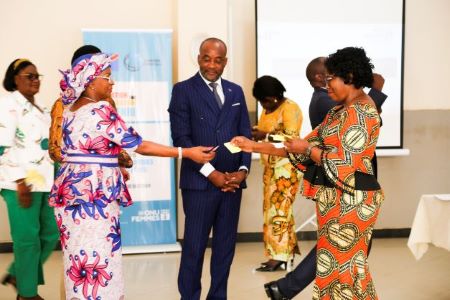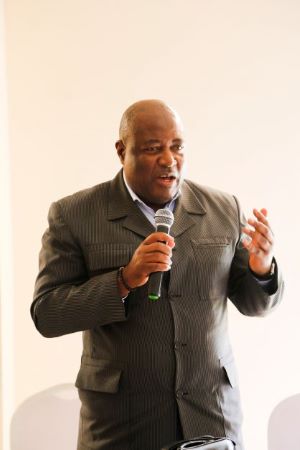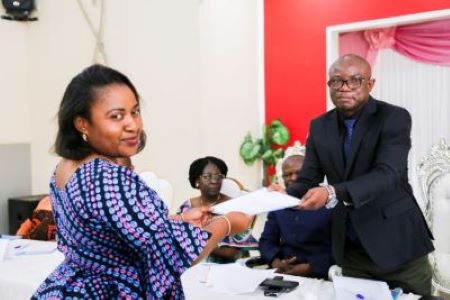DRC: Provincial leaders strengthen their law-drafting and gender-mainstreaming capacities
In the DRC, this October and November, elected officials from different provinces are attending two-day trainings by UN Women on legislative writing, gender mainstreaming and transformational leadership in their respective provinces. These culminate in the signing of a memorandum of understanding in which they undertake to integrate gender into parliamentary practices and engage UN Women to support them. The provincial deputies of Kongo Centrale and Haut-Katanga were the first to participate in said interactive workshops.
Date:

Local politicians play a crucial role in the advancement of gender equality at all levels of society. From the drafting of norm-changing laws to parliamentary practices and inclusive leadership, local elected officials are a voice for their people and a means to inform national governments of what civil society needs and demands. While the main mission of the provincial

deputies in DRC is to propose and vote on laws as well as to control the actions of the government, especially given their unique understanding of their respective territories, this practice is hardly ever applied and 80% of laws are drafted and amended at governmental level.
UN Women is leading valuable workshops in various provinces of the DRC with the purpose of strengthening the skills of provincial deputies on the principles of equality between men and women and the integration of the gender dimension in the various texts, laws and budgets. “The consolidation of democracy, peace and social cohesion are values that essentially integrate the participation of women in the different levels of decision-making and their empowerment” voiced the President of the Provincial Assembly of Haut-Katanga, at the opening of the workshop the 4th of November.
These trainings are being implemented through the expertise of two UN Women programmes, namely, Women Political Participation and PADMPME, in its sub-component "improvement of the business environment". Five modules imparted by UN Women experts: Clementine Sangana, Rachel Muderwa, Anne Marie Lurhakumbira and Prof. Jean-Michel Kumbu, lead the engaging workshops, in which deputies do not hesitate to participate, collaborate during the exercises, and reach common ground. The biggest achievement is the signing of a Memorandum of Understanding by elected officials, committing to mainstream gender into all aspects of parliamentary practice, hand in hand with UN Women.
"I wish it had been longer and had come sooner”, expressed several participants during the anonymous evaluation distributed at the end of the workshop. An overall success both in its participation and outcomes, UN Women DRC will continue to reinforce provincial leaders' capacities in the run up to the 2023 elections.
